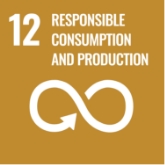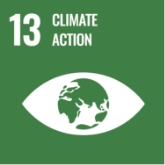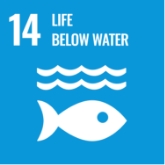


Hayashibara Co., Ltd. (Headquarters: Shimoishii, Kita-ku, Okayama; Representative Director: Naoki Yasuba), a member of the NAGASE Group, has registered trehalose (product name: TREHA™) and pullulan that it develops, manufactures, and sells as materials on the Marine Biodegradable Plastic Positive List under the identification indicatorsystem of the Japan BioPlastics Association (JBPA).
In March 2022, these materials were also registered in another identification indicator system of the JBPA,“biodegradable plastic identification indicator,” as materials conforming to the criteria for inclusion in the Positive List. They have been included in the Positive List for marine biodegradable plastics, which have a lower concentration ofmicroorganisms than soil and are considered to be less susceptible to decomposition, and demonstrate a wide range ofapplications in biodegradable plastic products.
http://www.jbpaweb.net/identification/identification-marinebiodegradable/pl/b-8.html
(Japanese language only)
In pursuit of a decarbonized society, Japan is contemplating the widespread implementation of a carbon tax, leading toan increased demand in the chemical industry for materials that alleviate environmental impact and promote sustainability. Against this backdrop, we intend to leverage this registration as a platform to enhance our sales efforts,with a specific focus on the food packaging and agricultural sectors.
Notes:
In response to the recent global environmental challenges caused by marine plastic litter, the JBPA launched a new “IdentificationIndicator System for Marine Biodegradable Plastics” in July 2023.
Biodegradable: Pertains to materials released into the environment, including soil, rivers, and oceans, where microorganisms facilitatetheir breakdown into inorganic substances.
【Background and the Future】
Plastic products play an essential role in our daily lives, yet they resist natural degradation by Earth's microorganisms.The resultant marine pollution from plastic waste poses a pervasive global environmental challenge. Moreover, themanufacturing process relies on fossil fuels, and their combustion releases substantial amounts of carbon dioxide,exacerbating climate change.
Consequently, there is a swift global push towards decarbonization, and the landscape of manufacturing is rapidlytransforming in terms of sustainability. This shift is evidenced by the implementation of a carbon tax on companieswithin the European Union. Japan is also contemplating the comprehensive adoption of a carbon tax, necessitating thechemical industry to transition towards manufacturing with biodegradable materials that can undergo rapid decomposition in various environments, including soil, rivers, and oceans.
Given this situation, we have received approval from the JBPA for trehalose and pullulan, two of our materials withexpanding potential for applications in the chemical industry, to be used as natural organic materials that can be usedin biodegradable plastic products.
Until now, these two products have mainly been used as food and cosmetic ingredients, but we will also be promotingapplication solutions in the chemical industry, including lifestyle and food packaging materials and agricultural mulching sheets.
We aim to foster a sustainable society by developing, manufacturing, and advocating for the use of sustainablematerials.

● For Reference
Definition and characteristics of bioplastics]
The Japan BioPlastics Association (JBPA) defines bioplastics as “polymer materials that are produced bysynthesizing, either chemically or biologically, materials which contain renewable organic materials (naturalorganic polymer materials that are not chemically modified are excluded).”
See︓ http://www.jbpaweb.net/english/e-bp/index.html
[Japan BioPlastics Association]
Founded in 1989, the JBPA is a private organization dedicated to advancing the adoption of bioplastics—inclusiveof biodegradable and biomass plastics—as key materials in creating a recycling-based society. The JBPA collaborates with pertinent ministries, agencies, and organizations to primarily administer the identificationindicator system, adhere to ISO international standards, and draft JIS documents.
[The Japan BioPlastics Association Identification System]
The JBPA has three identification systems: (1) BiomassPla Identification Indicator System, (2) BiodegradablePlaIdentification Indicator System, and (3) Marine BiodegradablePla Identification Indicator System. Regarding (3),since the density of microorganisms in the ocean is an order of magnitude lower than on land, and the types ofmicroorganisms are different from those on land, a new system to certify products that are sufficiently biodegradable and safe in the marine environment has been in operation since July 2023.
[The Japan BioPlastics Association Identification System]
The JBPA has three identification systems: (1) BiomassPla Identification Indicator System, (2) BiodegradablePlaIdentification Indicator System, and (3) Marine Biodegradable Plastics Identification Indicator System. Regarding (3), since the density of microorganisms in the ocean is an order of magnitude lower than on land, and the types ofmicroorganisms are different from those on land, a new system to certify products that are sufficiently biodegradable and safe in the marine environment has been in operation since July 2023.
◆For inquiries regarding applications of trehalose/pullulan in the chemical engineering field:
New Business Development Unit, Hayashibara Co., Ltd.
https://www.hayashibara.co.jp/data/en_contact/
◆For inquiries regarding press releases:
Corporate Design & Management Department, Hayashibara Co., Ltd.
https://www.hayashibara.co.jp/data/en_contact/
